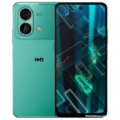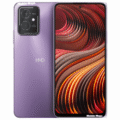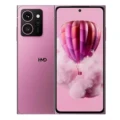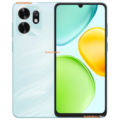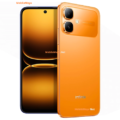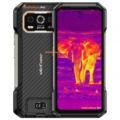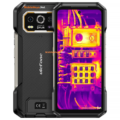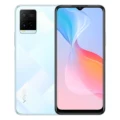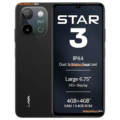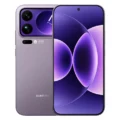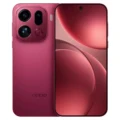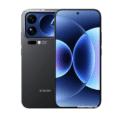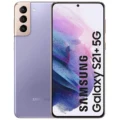Price List: Under Tk.5,000 | Tk.5001-10000 | Tk.10001-15000 | Tk.15001-20000 | Tk.20001-30000 | Tk.30001-40000 | More Mobiles
- Home
- All Mobile
- HMD
- HMD 3210
HMD 3210
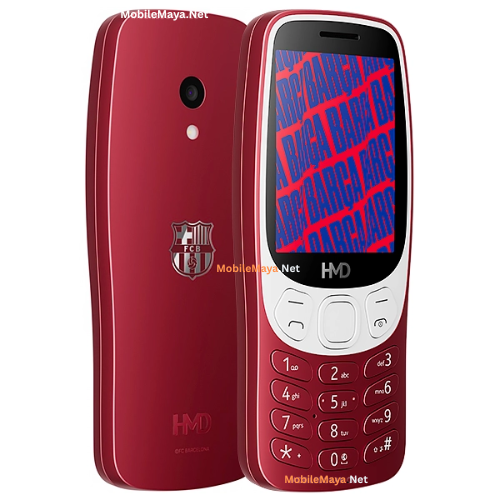

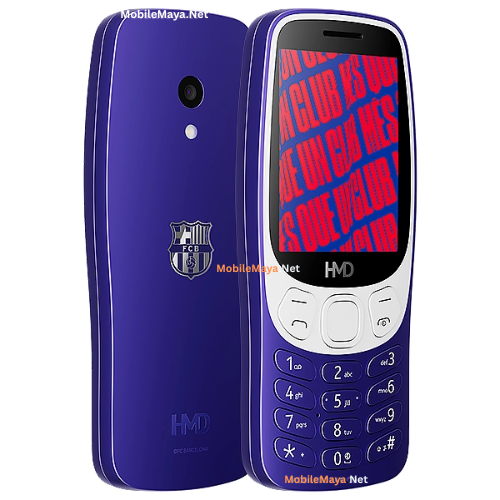
Specifications
Price in Bangladesh
| Expected Price | Coming soon |
General
| Device Type | Feature Phone |
| Announced | March, 2026 |
| Released | April, 2026 |
| Status | Available |
Hardware & Software
| Operating System OS => Every computer system run on a base software called Operating System (OS). Operating System controls all basic operations of the computer (such as smartphone, PDAs, tablet computers and other handheld devices). The Operating System allows the user to install and run third party applications (apps), apps are used to add new functionality to the device. | Feature Phone |
| Chipset Chipset is a group of integrated circuits designed to perform one or a more dedicated functions, often with real time computing constraints, Popular smartphones are equipped with more advanced embedded chipsets that can do many different tasks depending on their programming. | Unisoc T107 (22 nm) |
| CPU CPU (Central Processing Unit) mostly known as processors, CPU processes instructions in order to carry out certain functions that make your device operate properly. Processors are often described as the brain of computers, smartphones and tablets, Smartphones and tablets rely on processors to carry out their every task, Processors are an incredibly important factor in selecting any type of computing device, including your smartphone. | 1.0 GHz Cortex-A7 |
| RAM (Memory) RAM (Random Access Memory) is a type of computer memory that can be accessed randomly, any byte of memory can be accessed without touching the preceding bytes that allows information to be stored and accessed quickly from random locations. RAM is the most common type of memory found in computer systems, smartphones, tablets and other electronic devices. | 64 MB |
Design
| Dimensions | 122 x 52 x 13.1 mm (4.80 x 2.05 x 0.52 in) |
| Weight | - |
| Colors |
Blue, red |
| Build Material | Plastic frame, plastic back |
Display
| Display Type Display Technology => A number of display technologies and types used in mobile phones => TFT (Thin Film Transistor), IPS (In-Place Switching), OLED (Organic Light Emitting Diode), AMOLED (Active-Matrix Organic Light-Emitting Diode), Super AMOLED (an even advanced version of AMOLED), Resistive Touchscreen (Resistive touchscreens contain two layer of conductive material with a very small gap between them which acts as a resistance), Capacitive Touchsceen (Capacitive touchscreen technology consists of a layer of glass coated with a transparent conductor) | TFT |
| Size | 2.4 inches, 17.8 cm2 (~28.1% screen-to-body ratio) |
| Resolution | 240 x 320 pixels, 4:3 ratio (~167 ppi density) |
| HDR 10 / HDR+ support |
Rear Camera
| Camera Setup | Single |
| Main Camera | 2 MP |
| OIS | |
| Flash Flash Light => There is commonly two types of flash lights are used in camera mobile phones, LED Flash (LED flash offers lower power consumption with drive circuitry that takes up very little room, LEDs can be strobed faster than any other light source), Xenon Flash (xenon flash produces an extremely intense full-spectrum white light for a very short duration) | LED flash |
Front Camera
| Camera Setup | Single |
| Secondary | No |
Battery
| Battery Type Battery Type => Cell phones run on various kinds of batteries depending on the manufacturer, phone size or shape and features. There are basically four types of cell phone batteries => Lithium Polymer, Lithium Ion, Nickel Metal Hydride and Nickel Cadmium. | Li-Ion (Lithium Ion) |
| Placement | Removable |
| Capacity Battery Capacity is a measure (typically in Amp-hr) of the charge stored by the battery, and is determined by the mass of active material contained in the battery. The battery capacity represents the maximum amount of energy that can be extracted from the battery under certain conditions. | 1450 mAh |
| USB Type-C | USB Type-C |
Storage
| Storage Capacity | 128 MB |
| USB OTG |
Network
| 2G Network |
GSM 850 / 900 / 1800 / 1900 |
| 3G Network |
HSDPA 850 / 900 / 2100 |
| 4G Network | LTE |
| SIM SIM (Subscriber Identity Module) is a small card that contains mobile network subscriber's account information. This allows the phone using the card to attach to a mobile network. The SIM card is most commonly associated with GSM and UMTS mobile networks. Moving a SIM card from one phone to another allows a subscriber to switch mobile phones without having to contact their mobile network carrier. SIM cards can also be used by a phone to store limited amounts of data, such as phone numbers and text messages. | Standard SIM |
Data
| GPRS GPRS (General Packet Radio Service) is a packet oriented mobile data service on the 2G and 3G cellular communication system's global system for mobile communications (GSM), Generally, GPRS is used for the purpose of wireless data transfer, such as sharing pictures and videos or browsing the Internet via a mobile phone connection. | |
| EDGE EDGE (Enhanced Data GSM Environment) is a wireless network technology generally considered the next step in the 2G network offers data transfer rates up to four times faster than ordinary GSM networks, Generally, EDGE is used for the purpose of wireless data transfer, such as sharing pictures and videos or browsing the Internet via a mobile phone connection. | |
| Speed | HSPA, LTE |
| Web Browser Web Browser => a web browser is a software application used to locate, retrieve and display content on the World Wide Web, including Web pages, images, video and other files, The primary function of a web browser is to render HTML, the code used to design or markup webpages. | HTML5 |
Messaging
| SMS SMS (Short Messaging Service) is a text messaging service component of phone, Web, or mobile communication systems. It uses standardized communications protocols to allow mobile phone devices to exchange short text messages over the networks. | Yes |
| MMS MMS (Multimedia Messaging Service) is a standard way to send messages that include multimedia content (audio clips, video clips and images) to and from mobile phones over wireless networks using the WAP protocol. |
Connectivity
| Bluetooth Bluetooth is a wireless communications technology for exchanging data between mobile phones, headsets, computers and other network devices over short distances without wires, Bluetooth technology was primarily designed to support simple wireless networking of personal consumer devices. | 5.0, A2DP |
| Wi-fi Wi-Fi is a popular wireless networking technology using radio waves to provide high-speed network connections that allows devices to communicate without cords or cables, Wi-Fi is increasingly becoming the preferred mode of internet connectivity all over the world. | No |
| Wi-fi Hotspot | |
| Infrared Infrared connectivity is an old wireless technology used to connect two electronic devices. It uses a beam of infrared light to transmit information and so requires direct line of sight and operates only at close range. | |
| USB | USB Type-C |
| GPS GPS The Global Positioning System is a satellite-based radio navigation system, GPS permits users to determine their position, velocity and the time 24 hours a day, in all weather, anywhere in the world, In order to locate your position, your device or GPS receiver must have a clear view of the sky. | No |
| NFC NFC (Near field communication) is a set of standards for smartphones and similar devices to establish peer-to-peer radio communications with each other by touching them together or bringing them into proximity, usually no more than a few inches. |
Media
| FM Radio | Wireless FM radio |
| Loudspeaker | Yes |
| 3.5mm Jack | Yes |
Sensors & Security
| Fingerprint Sensor |
More
| Made By | Finland |
Performance Tests
PROS
- 4G LTE support
- USB Type-C charging
- Removable battery
- Wireless FM radio
- Compact and durable build
- Affordable price
CONS
- No front camera
- No Wi-Fi or GPS
- Very limited storage
- Basic display and performance
HMD 3210 Price in Bangladesh
The HMD 3210 is expected to arrive in Bangladesh as an affordable feature phone, offering essential functions, a durable build, and a reliable battery at a budget-friendly price point. With modest RAM and storage, the device is designed for basic calling, texting, and everyday utility. Its simple design, sturdy plastic body, and long-lasting removable battery make it a practical option for users who want a dependable phone without the complexities of a smartphone.
Price & Variants
| RAM & Storage | Price (BDT) | Status |
|---|---|---|
| 64MB RAM + 128MB Storage | Coming Soon | Upcoming |
HMD 3210 Specifications
The HMD 3210 is an entry-level feature phone tailored for essential tasks like calling, messaging, and light media usage. It comes with a compact 2.4-inch TFT display, a basic 2MP rear camera, and a removable 1450mAh battery for long backups.
| Feature | Details |
|---|---|
| Model Name | HMD 3210 |
| Release Date | April 2025 |
| Market Availability | Available |
| Official Price | Coming Soon |
| RAM & Storage | 64MB RAM + 128MB Storage |
Display and Design
The HMD 3210 features a 2.4-inch TFT display with a resolution of 240 × 320 pixels, ensuring clear text and basic visuals suitable for everyday use. Its compact form factor fits comfortably in hand, making it easy for single-hand operation.
The device sports a plastic frame and back, delivering durability for daily handling. Available in Blue and Red, it embraces a classic, simple feature-phone aesthetic. Its lightweight body and ergonomic size make it ideal for users who prefer practicality over premium materials.
Performance and Processor
Powered by the Unisoc T107 (22nm) chipset and a 1.0 GHz Cortex-A7 CPU, the HMD 3210 delivers efficient performance for basic operations such as calling, SMS, and light app usage. With 64MB RAM and 128MB built-in storage, it handles essential features smoothly.
As a feature phone, it’s not intended for multitasking or gaming but shines in stability and battery efficiency. Storage is limited, but adequate for contacts, messages, and lightweight files.
Camera and Video
The phone includes a 2MP rear camera with an LED flash, allowing users to capture simple photos in daylight or low-light situations. While it doesn’t offer advanced photography options, it fulfills the basic camera needs of feature phone users.
There is no front camera, making the device more suitable for users who don’t rely on selfies or video calls.
Battery and Charging
Equipped with a 1450mAh removable Li-Ion battery, the HMD 3210 ensures long standby time and extended talk time, making it ideal for users needing reliability. The removable design allows easy battery replacement, a valuable feature for long-term use.
Charging is supported via USB Type-C, offering a more modern and convenient experience even on a budget phone.
Connectivity and 5G Support
The HMD 3210 supports a wide range of network options, including:
- 2G: GSM 850 / 900 / 1800 / 1900
- 3G: HSDPA 850 / 900 / 2100
- 4G: LTE
Other connectivity features include Bluetooth 5.0 with A2DP, USB Type-C, and wireless FM radio. However, it lacks Wi-Fi, GPS, and NFC, keeping the device simple and power-efficient.
Additional Features
Key features include:
- Wireless FM Radio
- Loudspeaker & 3.5mm headphone jack
- HTML5 browser for basic internet tasks
- Plastic durable build
- Made in Finland
While it lacks fingerprint sensors and advanced security features, it offers essential functionality expected from a modern feature phone.
Reason to Buy
- Ideal for users who prefer a simple, reliable feature phone
- Strong battery life with removable design
- 4G LTE support for smoother connectivity
- Bluetooth 5.0 for better wireless audio
- Durable build suitable for rough use
- Type-C charging, a rare addition in feature phones
- Budget-friendly and beginner-friendly
Verdict
The HMD 3210 stands out as a dependable, user-friendly feature phone with modern essentials like LTE connectivity and USB Type-C charging. Its long battery life, simple interface, and sturdy build make it perfect for seniors, kids, or anyone needing a backup device.
While it doesn’t offer advanced smart features or powerful specs, it excels in durability, battery performance, and everyday reliability—ideal for users who want a phone that “just works.”
FAQ
1. Does the HMD 3210 support 4G?
Yes, the phone supports 4G LTE connectivity.
2. Is the battery removable?
Yes, the 1450mAh battery can be removed and replaced easily.
3. Does the phone have Wi-Fi?
No, Wi-Fi is not included.
4. Can I use two SIMs?
It comes with a standard SIM slot but does not support dual SIM functionality.
5. Does it support FM radio?
Yes, it features a wireless FM radio.
Alternatives to HMD 3210
Here are some newly released feature phones you can consider:
- Nokia 105 (2024) – Extremely budget-friendly with long battery life
- Nokia 225 4G (2024) – Offers 4G support and a sleeker design
- itel Magic 3 – Stylish design with Bluetooth and camera
- Symphony L250 – Affordable with good battery backup
User Reviews
Disclaimer Note
We do not guarantee that the information of this page is 100% accurate and up to date.





